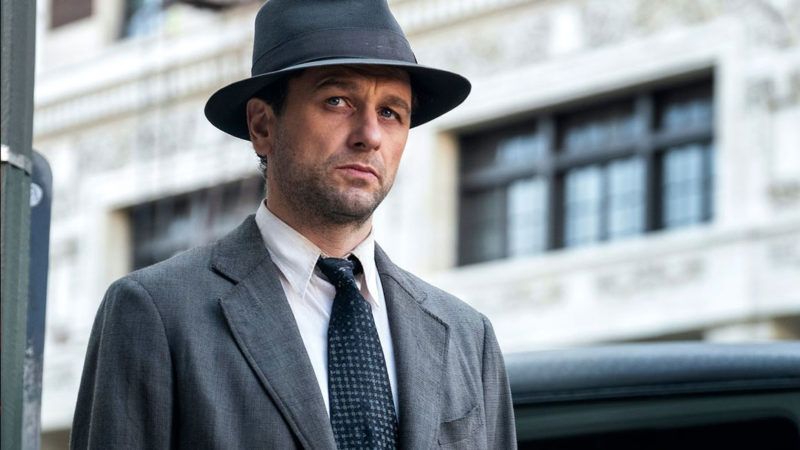Perry Mason
Whether the state is merely incompetent or actively corrupt, the show suggests the burdens of its failures fall primarily on the poor and the vulnerable.

"It's the state, Emily. The power of the state wants to crush you. No matter how minor your transgressions might seem to be." If HBO's exquisitely produced revival of Perry Mason has a mission statement, it's in those few lines.
The scene comes at a pivotal moment near the end of the fourth episode, in which defense lawyer Elias Birchard consults with Emily Dodson, a client wrongly accused of abetting the kidnapping and murder of her own infant son.
The crime was actually a product of corrupt cops and church elders, and Dodson was fingered for the murder not only because she'd had an affair with one of the kidnappers but because a sleazy district attorney thought pinning the crime on an unfaithful woman would be attention-grabbing—and thus politically useful in his mayoral quest.
Perry Mason is about the ways the criminal justice system fails to produce justice, sometimes because it is flawed, and sometimes because those who wield its power use their authority to pursue their own selfish ends rather than truth or fairness.
Whether the state is merely incompetent or actively corrupt, the show seems to suggest, the burdens of its failures fall primarily on women and minorities, the poor and the vulnerable, those who have the fewest means to defend themselves from overreach and abuse.
Co-director Tim Van Patten also worked on HBO's similarly luxurious Boardwalk Empire. Just as that show explored how Prohibition empowered avaricious men on both sides of the law, Mason is a show about how the law itself encourages cruelty and power seeking. In both series, the state is an engine of injustice and a corrupter of souls. But Perry Mason, at least, offers some hope in the form of personal decency, acts of conscience, and a dogged private attorney.


Show Comments (20)